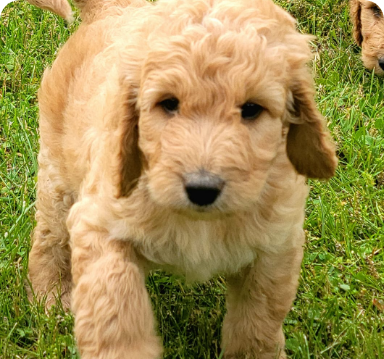Congratulations on your new furry family member! Here’s a list of tips and tricks to help you navigate the exciting journey of being a new puppy owner
Prepare Your Home:
- Puppy-proof your living space by removing potential hazards, such as electrical cords and small objects that can be chewed on.
- Create a designated and safe space for your puppy to rest and play.
Visit the Veterinarian:
- Schedule a visit to the vet for a health check-up and vaccinations.
- Discuss a suitable vaccination and deworming schedule with your vet.
Nutrition:
- Feed your puppy a high-quality puppy food appropriate for their breed and size.
- Establish a consistent feeding schedule and avoid feeding them from the table.
Basic Training:
- Begin basic training early, focusing on commands like sit, stay, and come.
- Use positive reinforcement techniques such as treats and praise to encourage good behavior.
Socialization:
- Introduce your puppy to various people, environments, and other animals to build positive social skills.
- Enroll in puppy socialization classes to help your puppy become well-adjusted.
Exercise:
- Provide age-appropriate exercise to keep your puppy healthy and prevent boredom.
- Take short walks, play fetch, or engage in other stimulating activities.
Grooming:
- Establish a grooming routine, including regular brushing and nail trimming.
- Get your puppy used to baths and grooming tools from an early age.
Identification:
- Ensure your puppy has proper identification, such as a collar with an ID tag and a microchip.
- Keep contact information up to date in case your puppy gets lost.
Crate Training:
- Introduce your puppy to a crate as a safe and comfortable space.
- Use positive reinforcement to associate the crate with positive experiences.
Patience and Consistency:
- Be patient with your puppy, as they are learning and exploring their new world.
- Consistency in training and routines helps your puppy understand expectations.
Health Monitoring:
- Watch for signs of illness or discomfort, and consult your vet if you notice anything unusual.
- Stay up-to-date with vaccinations, flea and tick prevention, and regular check-ups.
Chew Toys:
- Provide a variety of safe chew toys to satisfy your puppy’s natural chewing instincts.
- Rotate toys to keep them interesting and prevent boredom.
Positive Reinforcement:
- Reinforce good behavior with praise, treats, or toys.
- Avoid punishment-based training, as it can lead to fear and anxiety.
Potty Training:
- Establish a consistent schedule for bathroom breaks, especially after meals and waking up.
- Reward your puppy for successful potty outings and be patient during accidents.
Quality Time:
- Spend quality time bonding with your puppy through play, walks, and cuddles.
- Building a strong relationship enhances trust and cooperation.
Remember, every puppy is unique, so tailor these tips to fit your puppy’s individual needs and personality. Enjoy the journey of raising a happy and healthy companion!
